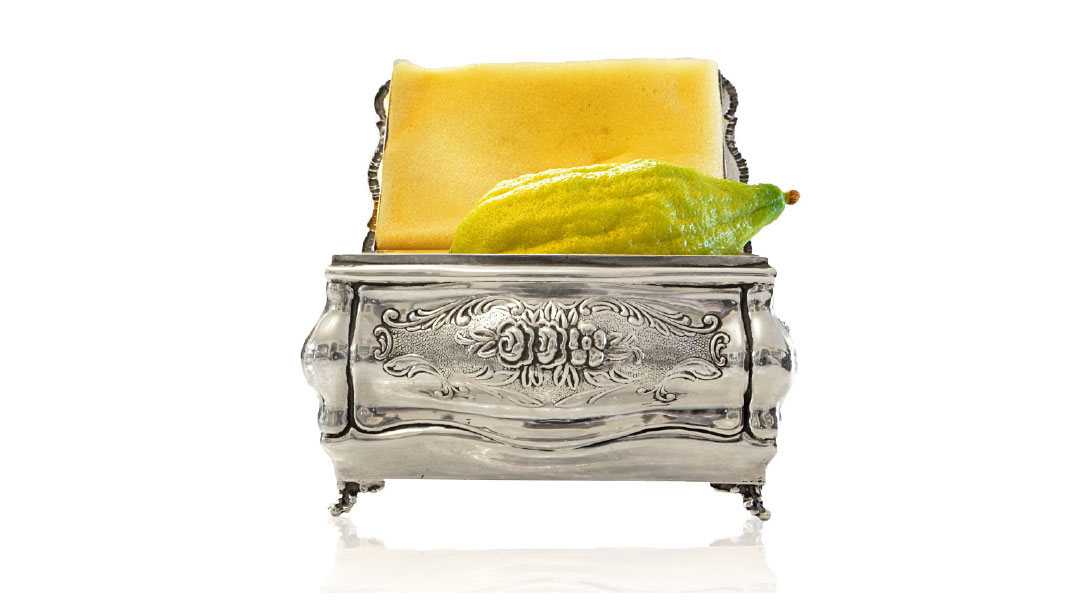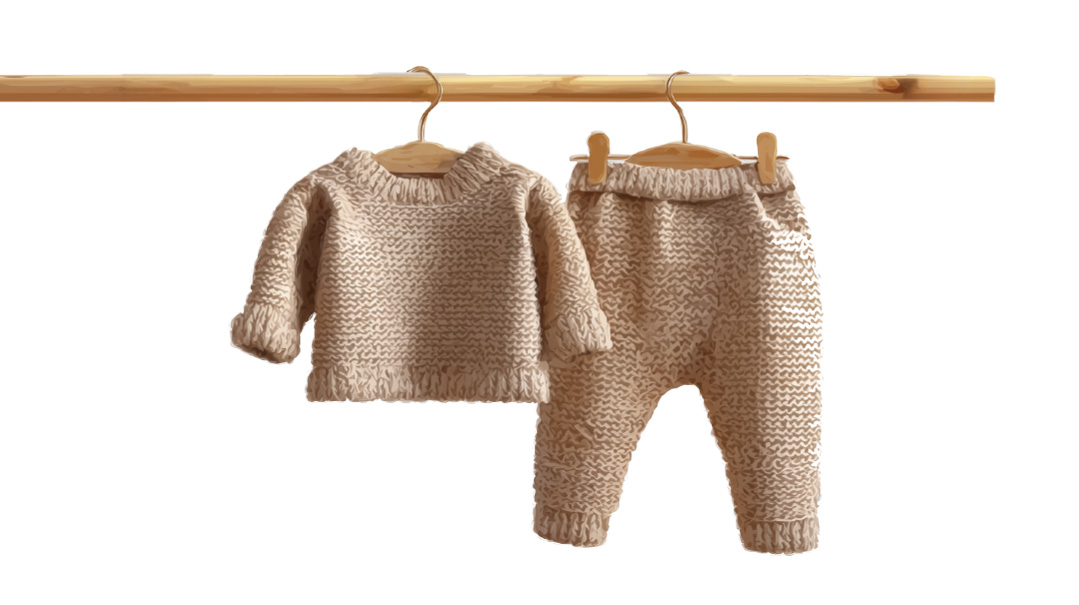Citrus Trust

“Did I ever tell you about the esrogim and the weddings?” he asks

I recall a semi-dark space, crates of esrogim, and those ubiquitous hairy nests they came in. Piles of passul lulavim to fan ourselves with. My big, strong grandfather deftly weaving koisheklach, examining esrogim behind double-bridged glasses.
What did I know then — a kid in a citrus-scented candy store — of dollars and cents? Of shipping costs, profit margins, gross and net?
To me, this was where the magic happened, where Succos happened….
Recently my grandfather was planning an esrog trip to Israel and during one of my calls we got to talking.
“Did I ever tell you about the esrogim and the weddings?” he asks.
“No.” The question has the sweet allure of a story. Three thousand miles away I smile into the phone and sit tight.
He takes me back 32 years. He’s making his first wedding, and coming head-to-head with reality. His regular job made a regular day-to-day parnassah, but he was thrown, like most people are, when it came time to make a chasunah. A friend offered him a loan. People spoke of refinancing and interest. He balked.
Man of faith that he is, he went to a corner and spoke to Hashem. I don’t want help from other people, I want directly from Your Hand.
Zeidy had been working on the side, helping an older man, an esrog soicher in the community, sell arba minim. They’d had a good working arrangement for a couple of years and just around then the older man approached him: He was looking to retire, did Zeidy want to take over?
He understood the work, he could sniff out a good esrog, and it was seasonal business, something he could fit in alongside his regular work. Zeidy was on it. He got the contacts, flew off to Kfar Chabad, spent hours in the orchard under the sun as they were harvesting the esrogim. He chose his stock right there in the field, came home and did brisk business.
When the next chasunah came around, he took out the esrog earnings, and used it for all the expenses. It covered all he needed, paying for the full cost of the simchah, with a breitkeit, from His Hand — just as he’d asked.
Another Succos. He went off to Genova, Italy, to the sun-baked, rugged mountains of the Calabria region, to bring back the Yanover esrogim, named for Genova.
The minhag of the rebbes is to make a brachah on an esrog from Calabria. Rabbi Schneur Zalman of Liadi taught that when Hashem instructed the Jews to take an esrog on Succos, they were in the desert, where no esrogim grew. Moshe sent messengers via the Ananei Hakavod to gather Calabria esrogim.
Zeidy had been asked by the Skverer Rebbe to source his esrog, and when he returned from Italy, he spent nights perusing his stock, looking and feeling and determining the best of the best for the Rebbe.
Succos went and came again. Soon another son got engaged, and again Zeidy withdrew the esrog money from the last few years, and covered all the expenses.
And so it went on. Eight children, 20-odd esrogim seasons, eight chasunahs fully paid for.
All those 20 years there were only two sellers in town, and he was able to earn amply.
His youngest son’s wedding took place in Elul. That Elul, another two people put out their shingle — they were selling arba minim too. There was more supply, fewer customers in the basement store. His earnings halved.
“Because I didn’t need it anymore,” he says simply. “Hashem had done His part, provided for the weddings, made sure I never went into debt. It was their turn now, I’d gotten mine.”
But weren’t you upset or resentful; it was yours, it had been coming to you all those years? I think.
But I don’t verbalize it; I know it’s not even a question for him. Instead I murmur something, acquiescence, acclamation, hoping I can learn to look at things that way too. Beyond expectation, past taking things for granted. To go beyond nature. And be nurtured from Hashem’s Hand.
I clutch the esrog, lift it to my nose and sniff. In the succah, in this diras arai, in the uncertainty that may be the only thing that’s certain this year, I smell childhood and a grandfather who trusted like a child.
I stand there trying to breathe it in, the citrus and the trust, and make it mine.
(Originally featured in Family First, Issue 712)
Oops! We could not locate your form.







